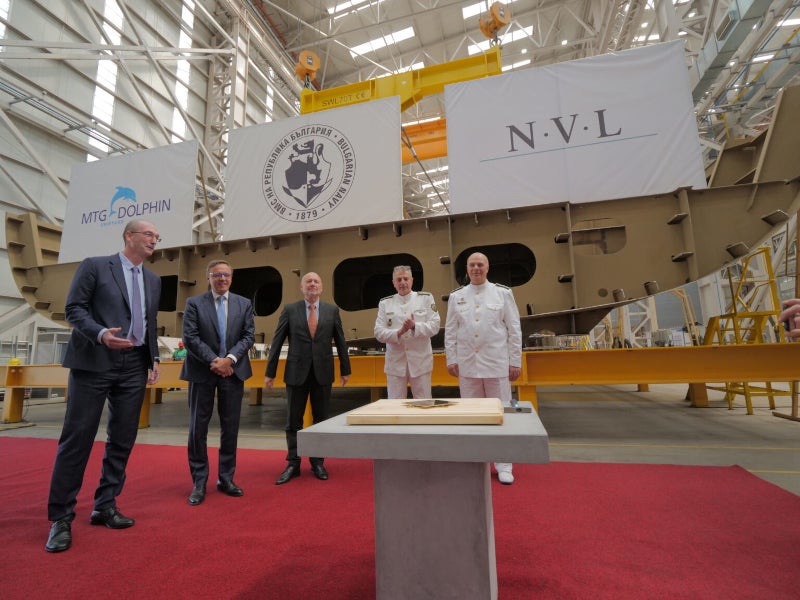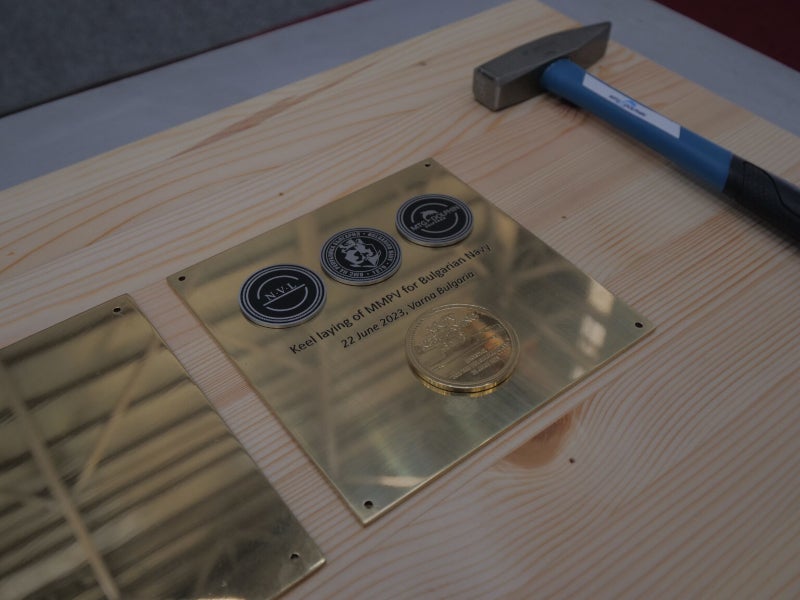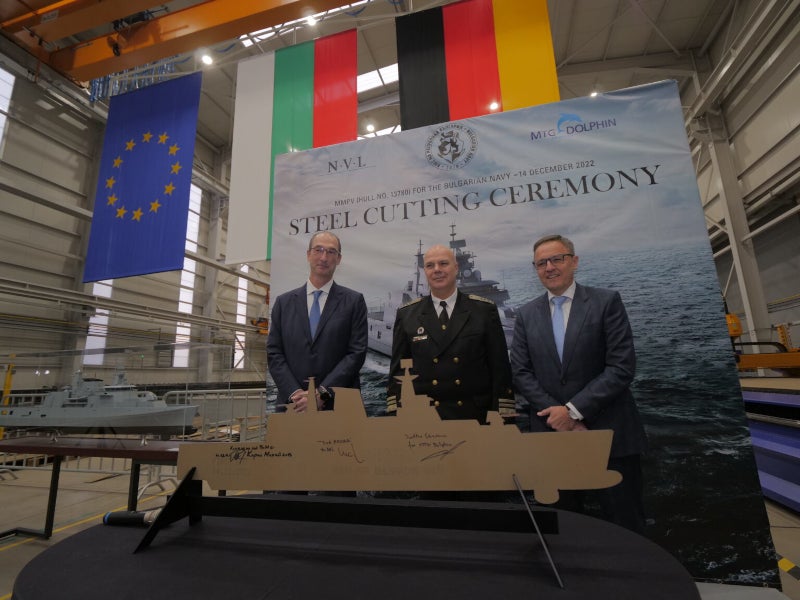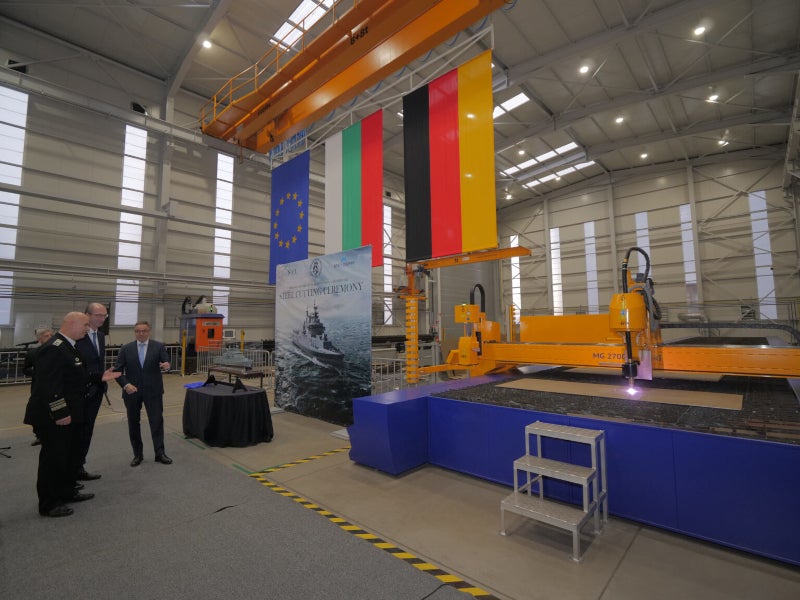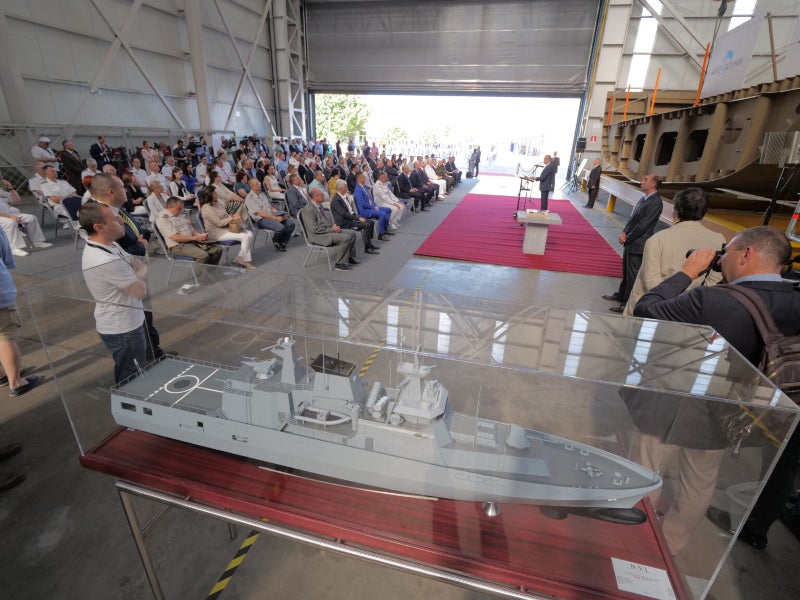German shipbuilding company NVL Group (formerly Lurssen Defence) is building two 90m multipurpose modular patrol vessels (MMPVs) for the Bulgarian Navy at shipbuilder MTG Dolphin’s shipyard in Varna, Bulgaria.
The vessels will fulfil specific roles in NATO and the European Union (EU) international alliance missions, empowering the Bulgarian Navy to respond effectively to threats from the air, land, surface and undersea domains.
The Bulgarian Ministry of Defence awarded a Lv984m ($593m) contract to NVL to build the vessels in 2020. The contract includes training for the crew and engineers, and integrated logistic support for three years. NVL was selected as the preferred contractor for the MMPV programme, following a two-year comprehensive evaluation.
This is currently the largest shipbuilding project of the Bulgarian Navy, and one of three projects aimed at modernising the country’s armed forces. Bulgaria also plans to acquire F-16 fighter jets and armoured vehicles.
The steel-cutting ceremony for the first MMPV, named Hrabri which means “brave” in Bulgarian, was held in December 2021. The 47t keel block of the first vessel was laid in June 2022.
The steel-cutting ceremony for the second vessel, named Smeli, was held in December 2022, followed by keel-laying in June 2023. The vessels are scheduled to be delivered to the Bulgarian Navy between 2025 and 2026.
Multipurpose modular patrol vessels’ design details
The MMPVs will be 90m long and have a displacement of 2,300t and a range of 3,000nm. The vessels will each have a flight deck and a helicopter hangar.
Their design is based on NVL’s approach, which emphasises incorporating modular systems to accommodate diverse operations. A well-planned mission deck serves as a versatile space for housing containerised mission modules, seamlessly integrated with the rest of the ship. Customisable configurations are offered for handling helicopters or fast interceptors, tailored to clients’ preferences.
The armament and accommodation options are equally flexible which ensures that they can adapt to operational requirements. Sufficient margins for future growth are provided to accommodate potential increases in weight and space needs throughout the lifespan of the vessels.
Armament aboard
The vessels will be armed with 76mm and 35mm weapons. They will also have surface-to-surface missiles (SSM), surface-to-air missiles (SAM), and anti-submarine warfare (ASW) capabilities.
The vessels will be equipped with Saab’s integrated combat management system (CMS) to support a wide variety of naval capabilities.
The CMS possesses sophisticated capabilities in data fusion and situational awareness, empowering operators to detect, make tactical decisions and engage in real-world operations. Its effectiveness has been demonstrated across a diverse range of mission types spanning from challenging littoral environments to the vast open ocean, and across all dimensions of warfare.
MMPVs’ communications
The MMPVs will be equipped with Saab’s TactiCall integrated communication system (ICS). The Evaluation Assurance Level (EAL) 5+ certified secure communication system enables control of all internal and external communication. This is a modular and scaleable system that can be seamlessly integrated with third-party equipment.
The ICS features an advanced and intuitive user interface that supports secure operations in any operational set-up including international or joint operations or single ship operations.
The MMPVs will also be equipped with the Link-11 real-time tactical maritime situational awareness system, which will be upgradable to Link-22 and Link-16. The systems will ensure the full interoperability of the MMPVs.
The Link-11 system is planned to be decommissioned in 2025 and replaced with Link-22. The Link-16 Block Upgrade 1 (BU 1) system will be discontinued from mid-2023.
Contractors involved
Naval Technology Bulgaria, a subsidiary of NVL, is the vessel designer for the MMPV programme.
Saab, an aerospace and defence company based in Sweden, was contracted by NVL to supply and integrate the CMS for the MMPVs in December 2020.
Saab will conduct the work at its facilities located in Sweden, Denmark, Australia and South Africa.

